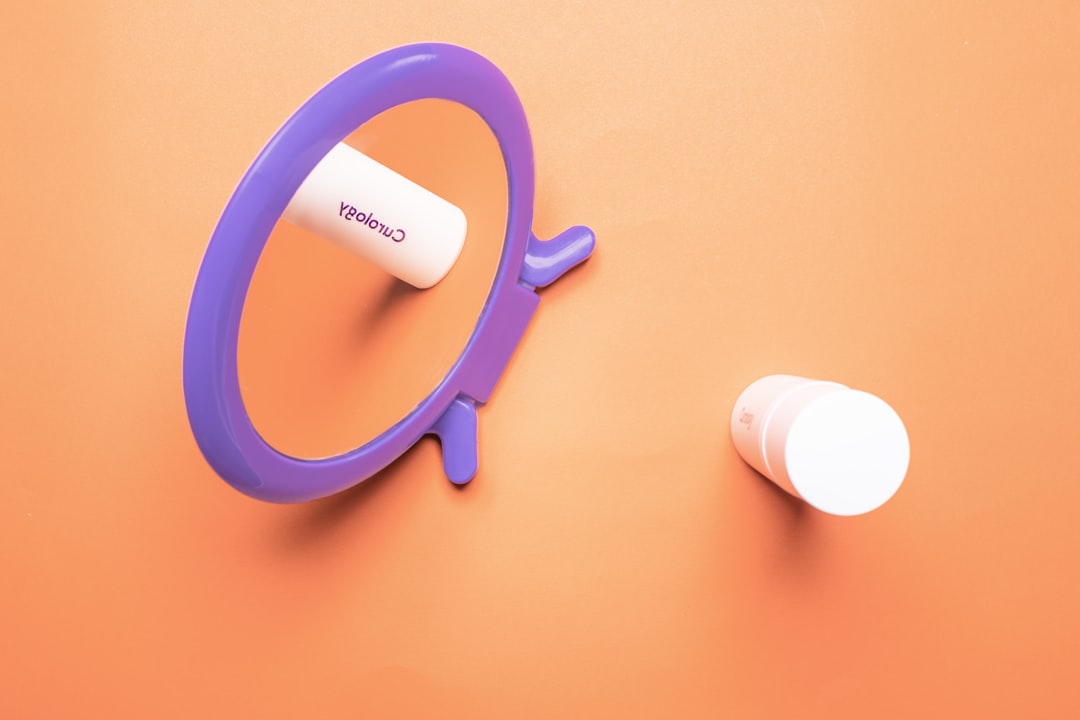
Get Your Best Skin Ever: Tips and Tricks
Skincare is an essential part of our daily routine that often gets overlooked. However, taking care of our skin is crucial for maintaining its health and achieving a radiant complexion. In this article, we will delve into the world of skincare and explore the different aspects that contribute to healthy and glowing skin. From understanding your skin type to building a skincare routine, protecting your skin from harmful UV rays, staying hydrated, avoiding common skincare mistakes, exploring natural remedies, adapting your routine to different ages and seasons, managing problematic skin concerns, and incorporating healthy lifestyle habits – we will cover it all.
Key Takeaways
- Understanding your skin type is crucial for achieving healthy skin
- Building a skincare routine with essential products and steps can help you achieve glowing skin
- Sun protection is important to shield your skin from harmful UV rays
- Hydration and nutrition play a vital role in achieving healthy skin
- Avoid common skincare mistakes to prevent damage to your skin
Understanding Your Skin Type: The Key to Achieving Your Best Skin
Before diving into the world of skincare products and routines, it is important to understand your skin type. There are four main skin types: dry, oily, combination, and sensitive. Dry skin lacks moisture and often feels tight and flaky. Oily skin produces excess sebum and is prone to acne and shine. Combination skin has both dry and oily areas, with the T-zone (forehead, nose, and chin) being oilier than the rest of the face. Sensitive skin is easily irritated and reacts to certain ingredients or environmental factors.
To identify your skin type, pay attention to how your skin feels throughout the day. If it feels tight and dry, you likely have dry skin. If it becomes shiny within a few hours of cleansing, you may have oily skin. If you notice both dryness and oiliness in different areas of your face, you probably have combination skin. And if your skin reacts easily to products or environmental factors such as wind or sun exposure, you likely have sensitive skin.
Once you have identified your skin type, it is important to use products tailored to your specific needs. Using products that are not suitable for your skin type can lead to further imbalances and issues. For example, using heavy moisturizers on oily skin can clog pores and cause breakouts, while using harsh cleansers on dry skin can strip away natural oils and exacerbate dryness. Understanding your skin type is the first step towards achieving your best skin.
Building a Skincare Routine: Essential Products and Steps for Glowing Skin
Now that you have identified your skin type, it’s time to build a skincare routine that caters to your specific needs. A basic skincare routine consists of three essential steps: cleansing, toning, and moisturizing. Cleansing removes dirt, oil, and impurities from the skin, while toning helps balance the pH levels and prepares the skin for better absorption of subsequent products. Moisturizing hydrates the skin and locks in moisture.
In addition to these three steps, there are other products that can be incorporated into your routine based on specific concerns or goals. Serums are concentrated formulas that target specific issues such as hyperpigmentation, fine lines, or acne. Exfoliants help remove dead skin cells and promote cell turnover for a smoother complexion. Masks provide deep hydration or address specific concerns such as acne or dullness.
To create a morning skincare routine, start by cleansing your face with a gentle cleanser to remove any impurities that may have accumulated overnight. Follow up with a toner to balance the pH levels of your skin. Apply a serum if you have any specific concerns you want to address. Finish off with a moisturizer to hydrate and protect your skin throughout the day. Don’t forget to apply sunscreen as the last step to shield your skin from harmful UV rays.
For your evening skincare routine, start by removing any makeup or sunscreen with a gentle cleanser or makeup remover. Double cleansing is recommended if you wear heavy makeup or waterproof products. Follow up with a toner to remove any remaining residue and prepare your skin for better absorption of subsequent products. Apply any serums or treatments you may be using. Finish off with a moisturizer to hydrate your skin overnight.
The Importance of Sun Protection: How to Shield Your Skin from Harmful UV Rays
| Topic | Data/Metrics |
|---|---|
| UV Radiation | UV radiation is a type of energy that comes from the sun and can cause damage to skin cells. |
| Skin Cancer | Exposure to UV radiation is the leading cause of skin cancer. |
| Sunburn | Sunburn is a sign of skin damage and can increase the risk of skin cancer. |
| SPF | SPF (Sun Protection Factor) is a measure of how well a sunscreen will protect skin from UVB rays, which are the main cause of sunburn and skin cancer. |
| UPF | UPF (Ultraviolet Protection Factor) is a measure of how well clothing and other fabrics protect skin from UV radiation. |
| Sunscreen | Using sunscreen with an SPF of at least 30 can help protect skin from UV radiation. |
| Shade | Seeking shade, especially during peak sun hours (10am-4pm), can help reduce exposure to UV radiation. |
| Sun Protection Habits | Developing sun protection habits, such as wearing protective clothing and using sunscreen, can help reduce the risk of skin cancer. |
One of the most crucial aspects of skincare is sun protection. The sun’s UV rays can cause significant damage to the skin, including sunburn, premature aging, and an increased risk of skin cancer. It is important to use sunscreen daily, even on cloudy days or during the winter months when the sun may not be as visible.
When choosing a sunscreen, look for a broad-spectrum formula that protects against both UVA and UVB rays. UVA rays penetrate deep into the skin and contribute to premature aging, while UVB rays primarily cause sunburn. Opt for a sunscreen with an SPF (sun protection factor) of at least 30, which blocks about 97% of UVB rays.
To apply sunscreen correctly, use about a teaspoon for your face and a shot glass worth for your body. Apply it generously and evenly to all exposed areas of your skin. Don’t forget to cover often overlooked areas such as your ears, neck, and hands. Reapply every two hours or more frequently if you are sweating or swimming.
Hydration and Nutrition: The Role of Water and Diet in Achieving Healthy Skin
Hydration plays a vital role in maintaining healthy skin. Drinking an adequate amount of water helps flush out toxins from the body and keeps the skin hydrated from within. Aim to drink at least eight glasses of water per day, or more if you are physically active or live in a hot climate.
In addition to water, diet also plays a significant role in achieving healthy skin. Incorporating skin-healthy foods into your diet can provide essential nutrients that promote a radiant complexion. Foods rich in antioxidants such as berries, leafy greens, and nuts help protect the skin from free radicals and oxidative stress. Omega-3 fatty acids found in fatty fish, flaxseeds, and walnuts help maintain the skin’s barrier function and reduce inflammation. Vitamin C-rich foods such as citrus fruits, bell peppers, and broccoli promote collagen production and brighten the skin.
Common Skincare Mistakes to Avoid: What Not to Do for Your Skin
While it is important to know what to do for your skin, it is equally important to know what not to do. There are several common skincare mistakes that can harm your skin and hinder your progress towards achieving a healthy complexion.
One common mistake is over-exfoliating. Exfoliating helps remove dead skin cells and promote cell turnover, but doing it too frequently or using harsh exfoliants can damage the skin’s protective barrier and cause irritation. It is recommended to exfoliate no more than two to three times per week, depending on your skin type and the product you are using.
Using harsh products is another mistake to avoid. Harsh cleansers or toners that strip away natural oils can disrupt the skin’s balance and lead to dryness or oiliness. Opt for gentle, pH-balanced products that cleanse without stripping the skin.
Not removing makeup before bed is a common mistake that can clog pores and lead to breakouts. Sleeping with makeup on prevents the skin from breathing and regenerating overnight. Make sure to remove all traces of makeup before going to bed, even if you are tired.
Natural Skincare Remedies: DIY Tips for Radiant Skin
Natural skincare remedies have gained popularity in recent years due to their effectiveness and minimal use of chemicals. Many natural ingredients have beneficial properties for the skin and can be incorporated into DIY recipes for masks, toners, and more.
Honey is a versatile ingredient that has antibacterial properties and helps moisturize the skin. It can be used as a face mask by applying a thin layer of honey to clean, damp skin and leaving it on for 10-15 minutes before rinsing off.
Aloe vera is another natural ingredient that is known for its soothing and hydrating properties. It can be used as a toner by applying pure aloe vera gel to the skin after cleansing and before moisturizing.
Tea tree oil is a powerful essential oil that has antimicrobial properties and can help treat acne. It can be diluted with a carrier oil such as jojoba oil or coconut oil and applied to blemishes or acne-prone areas.
While natural remedies can be effective, it is important to note that some individuals may have allergies or sensitivities to certain ingredients. Always patch test new ingredients or products on a small area of your skin before applying them to your entire face.
Skincare for Different Ages: How to Adapt Your Routine to Your Life Stage
As we age, our skin goes through various changes, and it is important to adapt our skincare routine accordingly. In our 20s, the focus should be on prevention and protection. This is the time to establish a good skincare routine and incorporate products with antioxidants and SPF.
In our 30s, collagen production starts to decline, and fine lines and wrinkles may become more noticeable. It is important to incorporate products with ingredients such as retinol, hyaluronic acid, and peptides to promote collagen production and maintain hydration.
In our 40s and beyond, the focus shifts towards addressing specific concerns such as sagging skin, age spots, and deeper wrinkles. Products with ingredients such as niacinamide, vitamin C, and growth factors can help improve the appearance of these concerns.
Regular check-ins with a dermatologist are important at every age to assess your skin’s needs and address any specific concerns or issues that may arise.
Skincare for Different Seasons: Adjusting Your Routine for Summer, Winter, and More
The changing seasons can have a significant impact on our skin, and it is important to adjust our skincare routine accordingly. In the summer, the heat and humidity can lead to increased oil production and breakouts. Switching to lightweight, oil-free products and incorporating a mattifying sunscreen can help combat these issues.
In the winter, the cold weather and indoor heating can cause dryness and dehydration. Switching to richer, more hydrating products and incorporating a moisturizing sunscreen can help combat these issues.
In transitional seasons such as spring and fall, it is important to reassess your skincare routine and make any necessary adjustments based on your skin’s needs.
Regardless of the season, it is important to use products with SPF year-round to protect your skin from harmful UV rays.
Skincare for Problematic Skin: Tips and Tricks for Acne, Rosacea, and Other Concerns
Many individuals struggle with problematic skin concerns such as acne, rosacea, eczema, or hyperpigmentation. While skincare alone may not be able to completely resolve these issues, it can help manage them and improve the overall appearance of the skin.
For acne-prone skin, it is important to use gentle cleansers and avoid harsh exfoliants that can irritate the skin further. Incorporating products with ingredients such as salicylic acid or benzoyl peroxide can help control breakouts. It is also important to avoid picking or popping pimples, as this can lead to scarring or further inflammation.
For rosacea-prone skin, it is important to use gentle, fragrance-free products that do not exacerbate redness or irritation. Avoiding triggers such as hot showers, spicy foods, or alcohol can also help manage symptoms.
For individuals with eczema or dry, sensitive skin, it is important to use gentle, fragrance-free products that provide hydration and help repair the skin’s barrier. Avoiding hot showers or baths and using lukewarm water instead can also help prevent further dryness.
If you are struggling with any of these concerns and your skincare routine is not providing the desired results, it is important to seek professional help from a dermatologist who can provide personalized advice and treatment options.
Beyond Skincare: Lifestyle Habits and Mindset for Healthy, Glowing Skin
While skincare products and routines play a significant role in achieving healthy, glowing skin, it is important to remember that they are just one piece of the puzzle. Lifestyle habits and mindset also play a crucial role in maintaining skin health.
Getting enough sleep is essential for skin regeneration and repair. Aim for seven to eight hours of quality sleep per night to allow your skin to rejuvenate.
Managing stress is important as it can contribute to various skin issues such as acne, eczema, or psoriasis. Incorporating stress management techniques such as meditation, yoga, or deep breathing exercises can help reduce stress levels and promote overall well-being.
Regular exercise improves blood circulation, which in turn promotes a healthy complexion. Aim for at least 30 minutes of moderate-intensity exercise most days of the week.
A positive mindset and self-care practices are also important for maintaining healthy skin. Taking time for yourself, practicing gratitude, and engaging in activities that bring you joy can have a positive impact on your overall well-being and radiate through your skin.
Skincare is not just about achieving a flawless complexion; it is about taking care of our skin’s health and well-being. By understanding our skin type, building a skincare routine tailored to our needs, protecting our skin from harmful UV rays, staying hydrated, avoiding common skincare mistakes, exploring natural remedies, adapting our routine to different ages and seasons, managing problematic skin concerns, and incorporating healthy lifestyle habits – we can achieve healthy, glowing skin. Prioritizing self-care and healthy habits is not only beneficial for our skin but also for our overall well-being. So, let’s make skincare a priority and embrace the journey towards healthy, radiant skin.
FAQs
What is the article “Best Skin Ever” about?
The article “Best Skin Ever” is about tips and tricks to achieve healthy and glowing skin.
What are some common skin problems?
Some common skin problems include acne, dryness, oiliness, wrinkles, and dark spots.
What are some tips for achieving healthy skin?
Some tips for achieving healthy skin include staying hydrated, eating a balanced diet, using sunscreen, avoiding smoking and excessive alcohol consumption, and establishing a consistent skincare routine.
What are some ingredients to look for in skincare products?
Some ingredients to look for in skincare products include hyaluronic acid, vitamin C, retinol, glycolic acid, and niacinamide.
What are some ingredients to avoid in skincare products?
Some ingredients to avoid in skincare products include parabens, sulfates, fragrances, and alcohol.
How often should I exfoliate my skin?
It is recommended to exfoliate your skin 1-2 times per week, depending on your skin type and the product being used.
What should I do if I have sensitive skin?
If you have sensitive skin, it is important to use gentle, fragrance-free products and to patch test new products before applying them to your entire face. It is also recommended to consult with a dermatologist for personalized skincare advice.


















